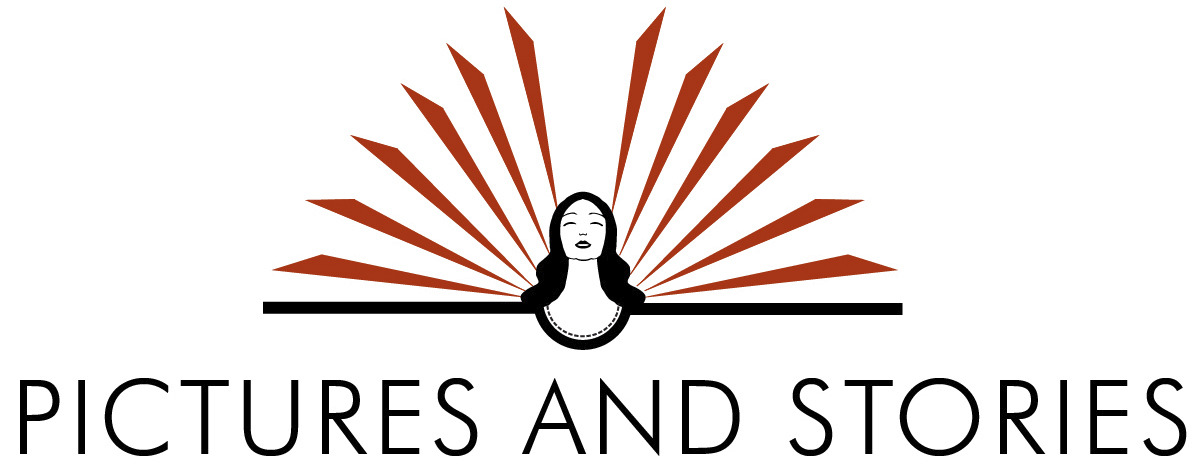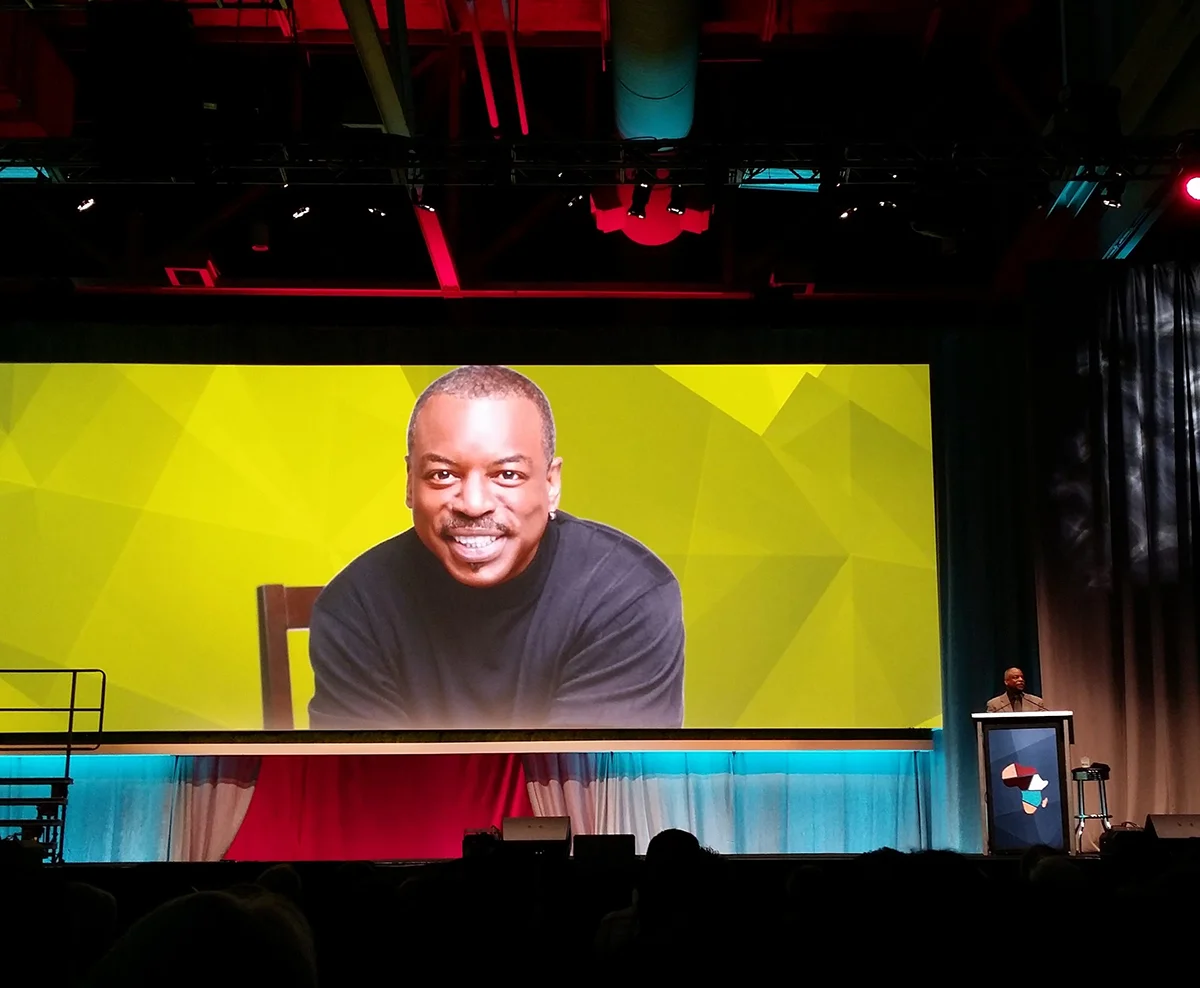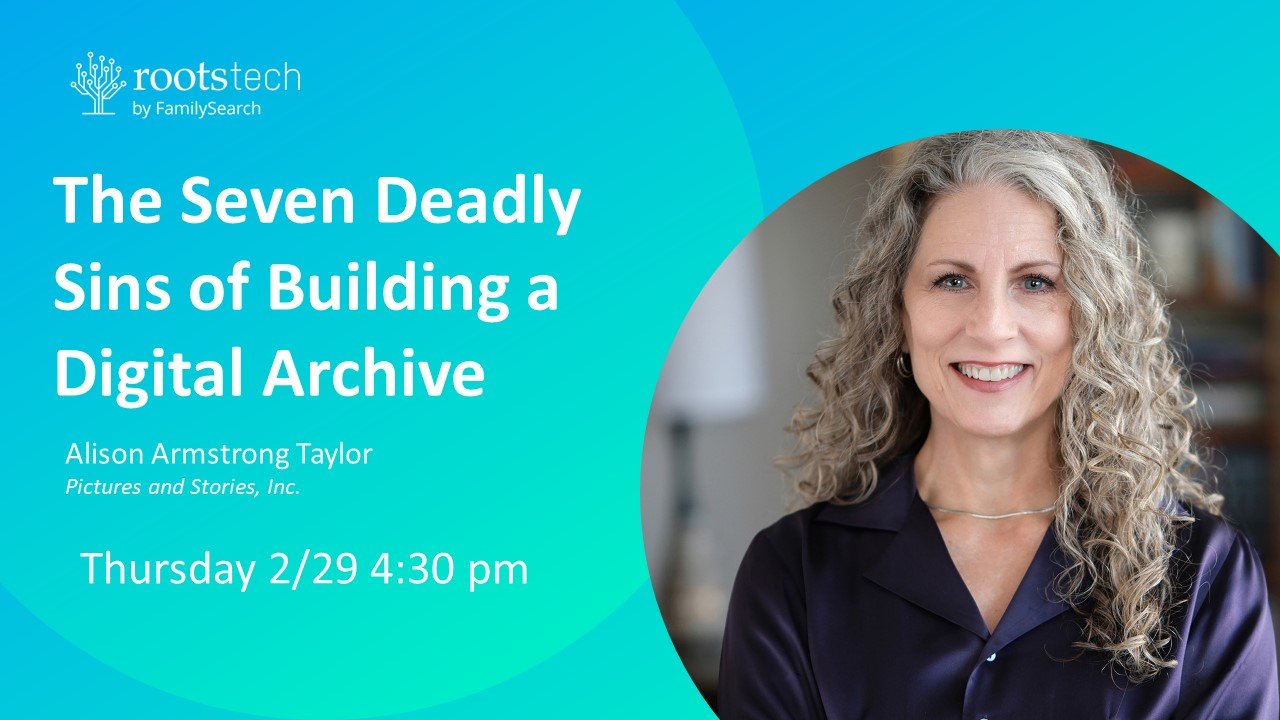"All Roads Lead to Virginia"
Our Pictures and Stories book gallery in the distance, viewed from the Coaches' Corner at RootsTech.
“Did they own slaves?”
It’s day 2 of RootsTech, and I’ve stolen 20 minutes away from our vendor booth to meet with a professional genealogist in the Coaches’ Corner, a new (and fabulous) feature this year at the world’s largest family history conference. She’s giving me some tips to help find my grandmother’s family in Virginia.
“I don’t think so,” I reply. “They were too poor.”
“Well, everyone was poor after the war,” she said. Since I haven’t been able to get further back than the late 1800s, it occurs to me that I really don’t know how my grandmother's ancestors made a living pre-bellum. Grandmom often said that her mother's family were given an original land grant by the King of France (although I have not been able to ascertain this). If they were landowners in Virginia before the Civil War, the chances are good that they might have owned a plantation. And owned other human beings.
I’m not sure how to feel about this.
The genealogist has been extremely helpful, showing me a mother lode of pre-war documents listed on the FamilySearch Wiki for my grandmother’s county of birth. “All roads lead to Virginia,” she says, and wishes me well. I have a fleeting wish to drop everything and run down the street to the Family History Library to start reading microfilm. But since I don’t want to miss the next 2 ½ days of the conference that is the highlight of our year, I go back to our booth, deep in thought.
LeVar Burton's moving keynote address at RootsTech.
"So This Is What You Folks Are All Doing Here?!"
Day 3, I get to the Salt Palace early to get a VIP seat for the day’s keynote address by LeVar Burton. My inner geek girl is pretty excited (Star Trek! Reading Rainbow!) and I momentarily forget that it is African Heritage Day at RootsTech. (I have noted with pleasure that there is a higher-than-average level of diversity and international presence here this year than ever before.) A high-energy (white male) comedian delivers a freakishly accurate and (even he admits) possibly offensive medley of Motown songs to warm up the crowd of thousands. Then Burton is introduced and, looking dignified and a bit older than his press photo that adorns the giant screens, he walks to the podium.
What follows is decidedly different from the usually entertaining, often humorous RootsTech celebrity keynotes. Burton is professorial, serious. He stands behind the podium rather than pacing the huge stage, and reads a prepared speech. It is a riveting address on the power of storytelling.
He does talk about Star Trek, not to reveal snappy anecdotes about backstage antics, but instead relates how, as a child, watching characters of color in the original Star Trek taught him that “there was a place for me when the future came.” Later in his life, Star Trek creator Gene Rodenberry became his “storytelling mentor.” He calls imagination “our superpower as human beings” and asserts that reading is “as important to our survival as breathing.” But because this is RootsTech, he is here to talk about family stories. He praises his mother, Erma Jean Christian, who was determined that her son would meet his full potential in life, “even if she had to kill me….I am 60 years old and I am still afraid of that woman!”
And he talks about his ancestry. Which he cannot do without bringing up slavery in America. He talks about his mentor Alex Haley, author of Roots, and about playing Kunta Kinte in the groundbreaking 1977 TV miniseries at the age of 19. He shows a nearly ten-minute scene from Roots (the scene which was burned into my brain after watching it in high school. “My name is Kunta Kinte.”) Forty years later, the scene is still disturbing and powerful. The audience is completely still except for a few sniffles. I dig a kleenex from my purse and offer one to a fellow blogger sitting on my right.
LeVar Burton as Kunta Kinte in Roots.
Burton says, “All of us truly stand on the shoulders of those who have gone before us. Those willing to sacrifice and sweat and shed blood and even give that ultimate measure to ensure that their children and their children’s children might live in a world that values an individual not as a commodity to be bought and sold for labor, but as an accepted child of the Creator and worthy of the dignity and respect deserving of any human being.”
LeVar Burton gets emotional when presented with a gift of his family's genealogical research.
At the conclusion of his address, the audience rises to give a standing ovation. (Except for an older couple sitting next to my left who seem unmoved; they have remained stonefaced throughout.) Thom Reed from FamilySearch comes on stage to surprise Burton with a leather-bound volume of genealogical research on his family. On the screens appear a photo of Burton’s grandmother and a document that shows the signature of his grandfather. Burton is visibly weeping, wiping his eyes with a large white hankie. As if he suddenly understands, he turns to the audience and calls out, “So this is what you folks are all doing here?!” The audience cheers in reply.
"Everyone in this Room—We Are Connected"
Panel discussion with Melvin Collier, Sherri Camp, Kenyatta Berry, and Nkoyo Iyamba.
Next on the program is a panel discussion with Melvin Collier and Sherri Camp, renowned African American genealogists, and Kenyatta Berry, host of PBS’ "Genealogy Roadshow." They begin talking about the fact that they all have European as well as African ancestry. Panel moderator and journalist Nkoyo Iyamba (who I had the privilege of sitting next to at Tuesday’s media dinner) said, “No matter what skin color we are, everyone in this room—we are connected.” She says, “Watching clips of stories like Roots, people have asked me, 'Why are we still talking about slavery? At what point can we move on if we continue to tell these stories?'" (This is the question I swear I could read in the minds of my unmoved seat neighbors, and I’m so glad she brought it up.) “Please explain why that’s kind of a dangerous way of thinking.”
Sherri Camp replies, “It’s important for us to continually tell our stories. How will our children know who they are if we don’t tell our stories to them? How can we have a better world if we don’t know where we came from? I think it’s highly important that we continually tell the stories, over and over and over again, so that we don’t forget.” The audience applauds (except for the couple, of course. Perhaps they have just fallen asleep, and I am judging them harshly?) Nkoyo tells us that she is inspired to think that people who don’t look at all like her are potential cousins. She turns to the audience and says, “You could all be my relatives!” which elicits a cheer from the predominately white crowd.
After a few numbers from SLC’s Calvary Baptist Church Choir, there are some concluding words from Shipley Munson (a quintessential older white Mormon male, singer in the Tab Choir and chief marketing officer for FamilySearch) who declares it to be the most important and most moving keynote session they have ever had at RootsTech. I am grateful to FamilySearch leadership (headed by amazing CEO Steven Rockwood) and the RootsTech team for having sponsoring and supporting the idea that family history is cross-cultural and universal.
Villian, Hero, or Something In Between
Later that day, I am excited for a group interview scheduled with Kenyatta Berry. Before the interview begins, I express to her how moved I was by the keynote and panel discussion. I am mystified why anyone—especially anyone who would attend a conference about family history—would feel that we should just stop talking about “inconvenient” ancestral stories, that “it’s time to move on, get over it.” Just because it’s not our story? Would we say to a person of Irish extraction, “enough about the potato famine already?” Or one whose Mormon pioneer ancestors were repeatedly exiled and threatened with extermination, “get over it, that happened a long time ago?”
“I feel tremendous pride in knowing that I am descended from survivors,” says Berry, who in addition to hosting a television show, is also an accredited genealogical researcher, lawyer, and entrepreneur. “The fact that I am here means that my ancestors survived slavery, where many more didn’t. I come from a long line of very strong-willed people.”
In the interview, blogger (and my keynote seat neighbor) Diana Elder of familylocket.com, tells Berry that ever since she discovered that her own ancestors were slave owners, she's been disturbed by that piece of her family history. “How do I handle that?” she asks. “How do we talk about that?”
Genealogy Roadshow's Kenyatta Berry with Diana Elder of familylocket.com.
“We want to talk with you about it!” Berry replies. “You may feel shame about it, but we don’t. We want to have that conversation because it’s through your records that we can find our people.” She encourages Diana to record whatever information she finds about the slaves her ancestors owned and share it, contribute it to other sites where it can be found by those searching their African heritage. Berry laughs, “If you feel guilty about what your ancestors did, that’s how you can make up for it.”
My mind is spinning as I leave the interview. If I do find out that my ancestors owned slaves, I can’t say that I would personally feel guilty about it, any more than I feel personally proud that other ancestors fought against slavery, or feel horrified that my Scots ancestors were horse thieves. It’s all a part of History. And knowing their stories—whether they be villain, hero, or something in between—makes me a richer person. I resolve, inspired by Berry’s words, to share whatever I find.
Our Stories Matter
LeVar Burton reminded us that one family's story—Alex Haley's family—had the power to change a nation. "There was an America before Roots, and there was America after Roots." What makes me so passionate about family history—especially about preserving family stories—is that feeling of connection that goes beyond my tight circle of family and friends. What infects me with this “genealogy disease” (as Melvin Collier calls it) is the constant reminder that I am part of a larger family, a human family. This connection is a cure for loneliness and hate. We are all children of our Heavenly Father, equal in His eyes, and all of our stories matter to Him. Our stories, even if different than our own, should matter to each other. ||
Other Great Moments at RootsTech
Too many to mention, and being a speaker, vendor, and an ambassador this year left me little time to attend the many classes I wanted to!
Good news, though: Quite a few of the presentations (mine included) were recorded and are available to view on the RootsTech website. So if you didn't make it to SLC, you can still experience RootsTech. #NotAtRootsTech
Likewise, the keynote addresses (except for LeVar Burton's unfortunately; the RootsTech team tells me that it may be available in the future) are also on the RootsTech site. One I'll definitely watch again was CeCe Moore's fascinating talk about genetic memory and the future of DNA research. Trust me, it's not at all technical and quite moving.









